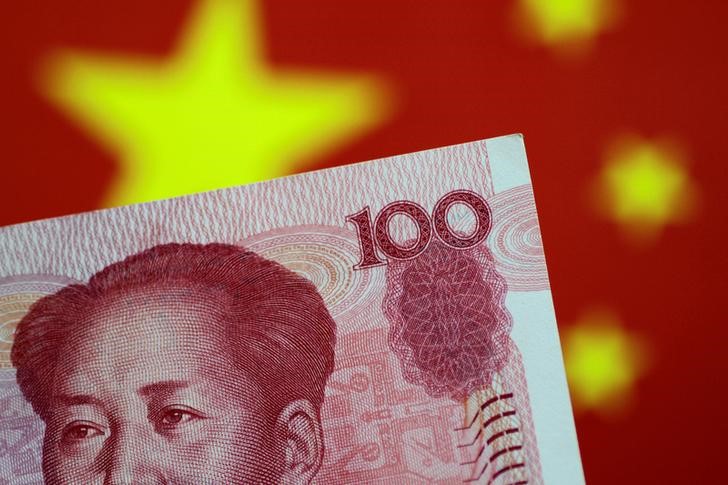Street Calls of the Week
BEIJING (Reuters) - China's foreign exchange regulator expects cross-border capital flows to remain basically stable and for the current account surplus to remain at a reasonable level in 2018, even as trade fears may blur the outlook for the yuan.
Escalating trade tensions between China and the United States have put investors on their guard and hit the stock market, spurred by President Donald Trump's move last week to slap up to $60 billion in tariffs on some Chinese imports.
That has provoked a warning from Beijing that it could retaliate with duties of up to $3 billion on U.S. imports.
Market views on the yuan's exchange rate are divided, but uncertainties regarding cross-border capital flows still exist, including rising trade protectionism, the State Administration of Foreign Exchange (SAFE) said on Thursday in a statement.
Capital flight had been seen as a major risk for China in early 2017, but a combination of tighter capital controls and a faltering dollar helped the yuan stage a strong turnaround, bolstering confidence in the economy.
Chinese firms are expected to allocate overseas assets more rationally in 2018, while foreign investors are seen making steady investment plans in China as it further opens up its financial markets, SAFE said.
China's 2018 current account surplus of $164.9 billion was the equivalent of 1.3 percent of the country's gross domestic product.
